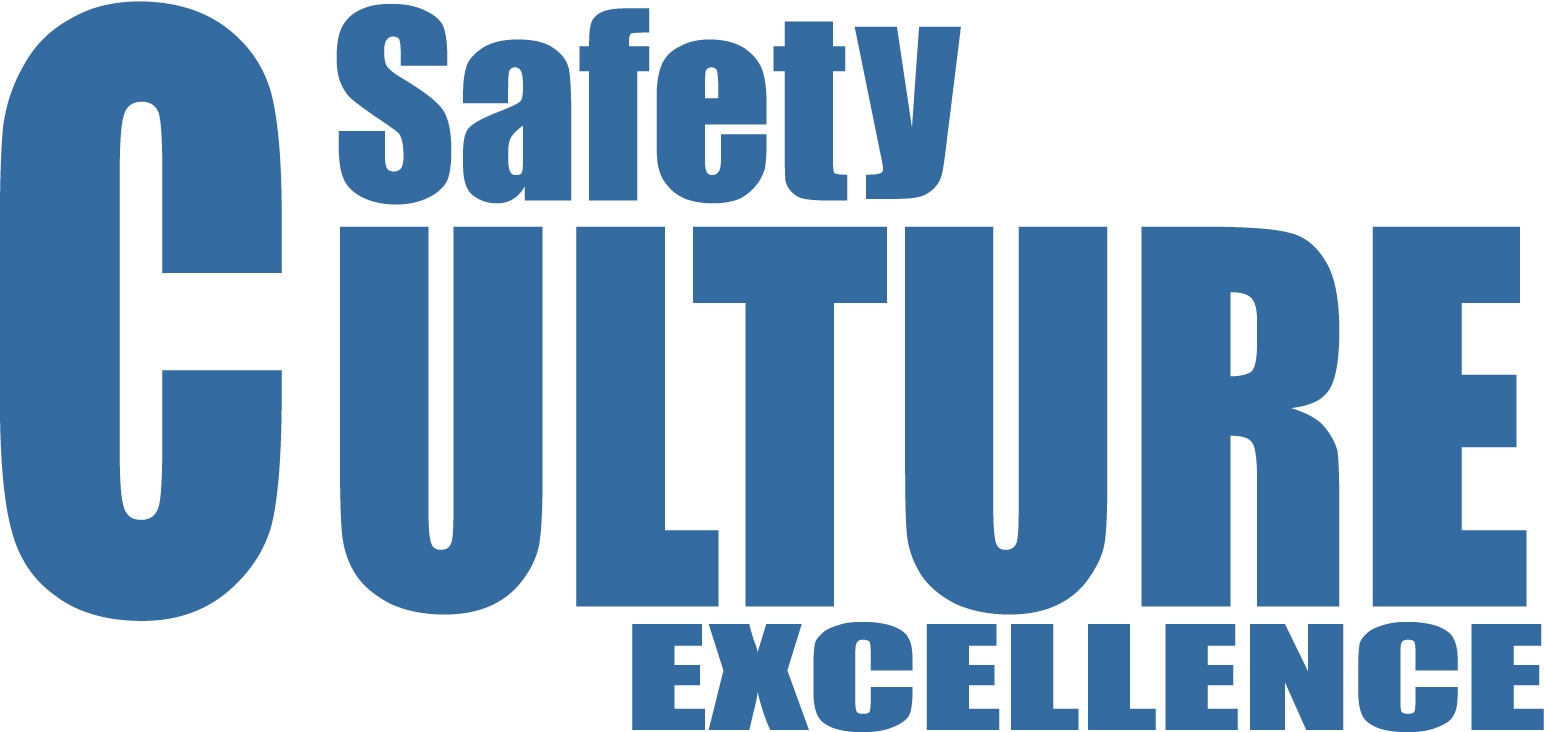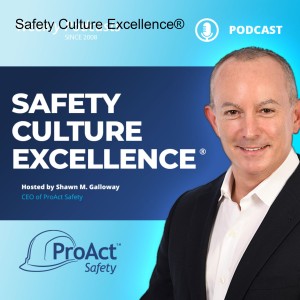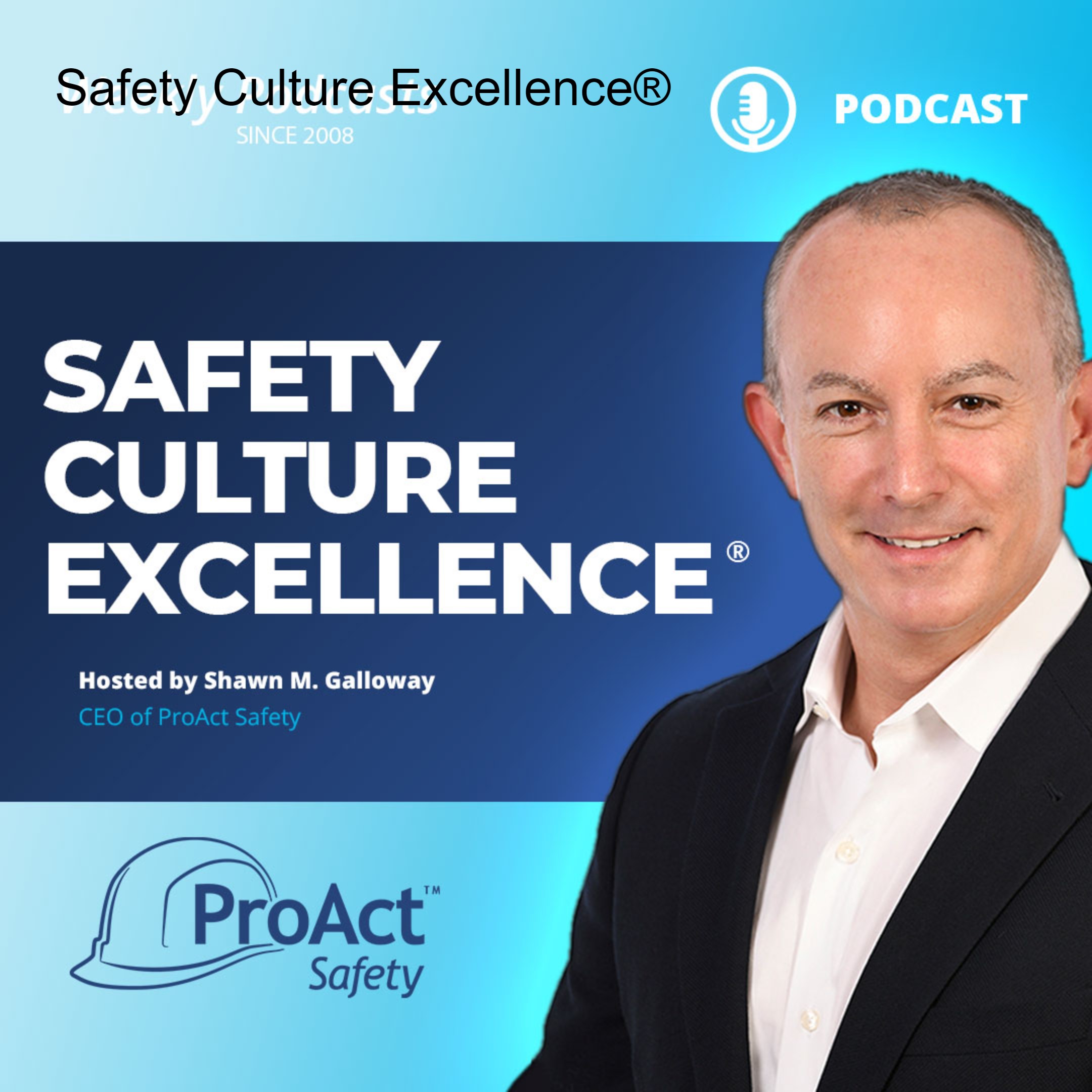Episodes

Wednesday Nov 13, 2013
Focus and Scan
Wednesday Nov 13, 2013
Wednesday Nov 13, 2013
When you drive down the highway your eyes perform two distinct, but related functions. You look at the entire roadway in front of you (scan) and you often glance at the stripes that line your position on the highway (focus). Both of these functions are crucial to safe driving. You need to know the entire path you are traveling, but also need to stay within your land to avoid other vehicles.
Most safety programs have a scan but lack a focus. Workers are admonished to “be careful” and “think before you act” but are not focused on specific improvement targets. Safety improvement is an elephant that must be eaten a bite at a time. Scanning may maintain the status quo, but it will not lead to significant improvement.
The best-performing organizations in safety constantly target specific improvements while maintaining the emphasis on the big picture. Workers are careful but also focused on specific improvement targets that can be transformational for the organization. Safety cultures form around their ability to solve safety problems and move on to other targets. They become a “can do” culture and thrive on conquering specific safety challenges. Excellence is not one-dimensional. It is a combination of scanning for all risks while focusing on overcoming specific risks. The journey to safety excellence is taken a step at a time and these steps are the focus that complement the scanning of the road ahead.
-Terry L. Mathis
Terry L. Mathis is the founder and CEO of ProAct Safety, an international safety and performance excellence firm. He is known for his dynamic presentations in the fields of behavioral and cultural safety, leadership, and operational performance, and is a regular speaker at ASSE, NSC, and numerous company and industry conferences. EHS Today listed Terry as a Safety Guru in ‘The 50 People Who Most Influenced EHS in 2010, 2011 and 2012-2013. He has been a frequent contributor to industry magazines for over 15 years and is the coauthor of STEPS to Safety Culture Excellence, 2013, WILEY.

Wednesday Nov 06, 2013
The Danger of Compliance
Wednesday Nov 06, 2013
Wednesday Nov 06, 2013
The goal of many safety programs is to get all workers and the workplace into compliance with applicable rules and regulations. This is a necessary and foundational step in any effective safety effort. However, if the goals and progression stop at compliance, this can cause crucial problems for the future. Once the workplace passes muster and workers know and adhere to the rules, then what? The next steps in safety must take the organization beyond the performance levels achieved through compliance. These steps require much more of workers than simply following the rules.
Beyond compliance is excellence through safety culture. An excellent safety culture is one in which workers are engaged, not simply conforming. Worker engagement in safety is seldom accomplished with the tools of compliance. A new set of tools that challenges workers to belong, participate, and expend creative energy is needed. The tools of compliance cannot be used or even adapted to meet these challenges. In fact, the tools used by many organizations to accomplish compliance can actually hamper or kill employee engagement. A work force can be policed into compliance but must be coached into excellence.
Failure to change from safety cops to safety coaches can stop the progression of safety performance in its tracks. Workers will develop a “good enough” attitude toward safety if there is no reason to go above and beyond. They will not buy in if there is no compelling rationale. They will not feel part of the effort if there are no involvement opportunities. They will never own the safety-excellence effort if they are not allowed to help create it. Recognizing the point at which compliance needs to give way to excellence is the key to continuous improvement in safety.
-Terry L. Mathis
Terry L. Mathis is the founder and CEO of ProAct Safety, an international safety and performance excellence firm. He is known for his dynamic presentations in the fields of behavioral and cultural safety, leadership, and operational performance, and is a regular speaker at ASSE, NSC, and numerous company and industry conferences. EHS Today listed Terry as a Safety Guru in ‘The 50 People Who Most Influenced EHS in 2010, 2011 and 2012-2013. He has been a frequent contributor to industry magazines for over 15 years and is the coauthor of STEPS to Safety Culture Excellence, 2013, WILEY.

Monday Oct 21, 2013
312 – Who Really Owns Safety?
Monday Oct 21, 2013
Monday Oct 21, 2013
Greetings everyone, this podcast recorded while in Bethesda, MD. I’d like to share an article I wrote, published August 2013 in ISHN Magazine. The published article can either be found on the magazine’s website or under Insights at www.ProActSafety.com.
I hope you enjoy the podcast this week. If you would like to download or play on demand our other podcasts, please visit the ProAct Safety’s podcast website at: http://www.safetycultureexcellence.com. If you would like access to archived podcasts (older than 90 days – dating back to January 2008) please visit www.ProActSafety.com/Store. For more detailed strategies to achieve and sustain excellence in performance and culture, pick up a copy of our book, STEPS to Safety Culture Excellence - http://proactsafety.com/insights/steps-to-safety-culture-excellence
Have a great week!
Shawn M. Galloway
ProAct Safety

Monday Sep 09, 2013
306 - Overcoming invulnerability to strengthen safety culture
Monday Sep 09, 2013
Monday Sep 09, 2013
Greetings everyone, this podcast recorded while in Bethesda, Maryland. I’d like to share an article I wrote, published June 2013 in BIC Magazine. It was titled, Overcoming invulnerability to strengthen safety culture. The published article can either be found on the magazine’s website or under Insights at www.ProActSafety.com.
I hope you enjoy the podcast this week. If you would like to download or play on demand our other podcasts, please visit the ProAct Safety’s podcast website at: http://www.safetycultureexcellence.com. If you would like access to archived podcasts (older than 90 days – dating back to January 2008) please visit www.ProActSafety.com/Store. For more detailed strategies to achieve and sustain excellence in performance and culture, pick up a copy of our book, STEPS to Safety Culture Excellence - http://proactsafety.com/insights/steps-to-safety-culture-excellence
Have a great week!
Shawn M. Galloway
ProAct Safety, Inc

Monday Aug 26, 2013
304 - Should the Safety Department Manage Safety?
Monday Aug 26, 2013
Monday Aug 26, 2013
Greetings everyone, this podcast recorded while in Clinton, Tennessee. I’d like to share an article written by Terry Mathis, published May 2013 in IndustryWeek Magazine. It was titled, Should the Safety Department Manage Safety? The published article can either be found on the magazine’s website or under Insights at www.ProActSafety.com. I hope you enjoy the podcast this week. If you would like to download or play on demand our other podcasts, please visit the ProAct Safety’s podcast website at: http://www.safetycultureexcellence.com. If you would like access to archived podcasts (older than 90 days – dating back to January 2008) please visit www.ProActSafety.com/Store. For more detailed strategies to achieve and sustain excellence in performance and culture, pick up a copy of our book, STEPS to Safety Culture Excellence - http://proactsafety.com/insights/steps-to-safety-culture-excellence Have a great week! Shawn M. Galloway ProAct Safety

Monday Aug 12, 2013
302 - LIVE Our Own Health and Safety Advice
Monday Aug 12, 2013
Monday Aug 12, 2013
Greetings everyone, this podcast recorded while in Indianapolis, Indiana. I’d like to share an article I wrote, published May 2013 in Occupational Health & Safety Magazine. It was titled, LIVE Our Own Health and Safety Advice. The published article can either be found on the magazine’s website or under Insights at www.ProActSafety.com. I hope you enjoy the podcast this week. If you would like to download or play on demand our other podcasts, please visit the ProAct Safety’s podcast website at: http://www.safetycultureexcellence.com. If you would like access to archived podcasts (older than 90 days – dating back to January 2008) please visit www.ProActSafety.com/Store. For more detailed strategies to achieve and sustain excellence in performance and culture, pick up a copy of our book, STEPS to Safety Culture Excellence - http://proactsafety.com/insights/steps-to-safety-culture-excellence Have a great week! Shawn M. Galloway ProAct Safety, Inc

Monday Aug 05, 2013
301 - Accountability: A Dirty Word in Safety
Monday Aug 05, 2013
Monday Aug 05, 2013
Greetings everyone, this podcast recorded while in Prattville, Alabama. I’d like to share an article I wrote, published April 2013 in Occupational Health & Safety Magazine. It was titled, Accountability: A Dirty Word in Safety. The published article can either be found on the magazine’s website or under Insights at www.ProActSafety.com. I hope you enjoy the podcast this week. If you would like to download or play on demand our other podcasts, please visit the ProAct Safety’s podcast website at: http://www.safetycultureexcellence.com. If you would like access to archived podcasts (older than 90 days – dating back to January 2008) please visit www.ProActSafety.com/Store. For more detailed strategies to achieve and sustain excellence in performance and culture, pick up a copy of our book, STEPS to Safety Culture Excellence - http://proactsafety.com/insights/steps-to-safety-culture-excellence Have a great week! Shawn M. Galloway ProAct Safety, Inc

Monday Jun 03, 2013
292 - A New Year A New Reality for Safety Professionals
Monday Jun 03, 2013
Monday Jun 03, 2013
Greetings everyone, this podcast recorded while in Cushing, OK. I’d like to share an article I wrote that was published February 2013 in BIC Magazine. It was titled, A New Year A New Reality for Safety Professionals. The published article can either be found on the magazine’s website or under Insights at www.ProActSafety.com. I hope you enjoy the podcast this week. If you would like to download or play on demand our other podcasts, please visit the ProAct Safety’s podcast website at: http://www.safetycultureexcellence.com. If you would like access to archived podcasts (older than 90 days – dating back to January 2008) please visit www.ProActSafety.com/Store. For more detailed strategies to achieve and sustain excellence in performance and culture, pick up a copy of our book, STEPS to Safety Culture Excellence, available through WILEY (publisher), Amazon or Barnes and Noble. Have a great week! Shawn M. Galloway ProAct Safety, Inc

Wednesday May 29, 2013
Changing Safety Terminology
Wednesday May 29, 2013
Wednesday May 29, 2013
I would like to suggest an update to some basic safety terminology. As ideas evolve the language used to describe them should also. The first term is provocation. The word has several meanings including to “incite to action.” It also means to irritate, enrage, anger, or exasperate. The negative side of this word tends to outweigh the positive and there are many other words that work better with fewer bad side effects (depending, of course, on your intent). If your intent is to further the pursuit of safety excellence, it seems that words such as advance, motivate, progress, and innovate would provide a call to action without burning bridges behind it. Underlying this term is the assumption that beating and kicking the locked back door of the mind will somehow open the front door to new ideas and opportunities. In my experience, attacking ideas almost always results in a defensive rather than a progressive response. If your goal is to stir things up without any real progress, the old word works just fine. The second term is confrontation. I can no longer count the number of times I have heard it espoused that workers must be trained in how to confront each other about safety issues or how supervisors must not be afraid to confront workers. Confrontation also has several meanings, but it overwhelmingly connotes attacking and creating enmity. Attacking creates defensiveness which tends to minimize openness to change. It also tends to damage relationships and cultures. I think the term coaching is a far superior term and concept. Coaching is helping another person to perform better. It does not require attacking or demeaning. It does not require the destruction of old ideas to form new ones. It tends to promote progress via evolution vs. revolution. It is what friends do for each other and what parents do for their children. It is what experts do for aspiring athletes, dancers, singers, and others desiring to develop excellent performance. Why not call this what we do for each other as we aspire to create excellent safety performance? They are just words; but words create meaning and meaning can direct actions. If we want the best actions, why not choose the best words? -Terry L. Mathis Terry L. Mathis is the founder and CEO of ProAct Safety, an international safety and performance excellence firm. He is known for his dynamic presentations in the fields of behavioral and cultural safety, leadership, and operational performance, and is a regular speaker at ASSE, NSC, and numerous company and industry conferences. EHS Today listed Terry as a Safety Guru in ‘The 50 People Who Most Influenced EHS’ in both 2010 and 2011. He has been a frequent contributor to industry magazines for over 15 years and is the coauthor of STEPS to Safety Culture Excellence, 2013, WILEY.

Monday Apr 15, 2013
285 - The Transformational Leader - A ProAct Safety Workshop
Monday Apr 15, 2013
Monday Apr 15, 2013
Health, Safety, and Environmental (HSE) professionals face an increasing challenge, one that intensifies with each new hypercompetitive priority. It is little wonder why organizations strive to move safety from a priority to a value. To create these shared values within an organization, they must be reinforced at or near the point of decision. In principle, this always holds true. In practice, accomplishing this grows increasing difficult. Simply stating that safety is a value at an increasing frequency and passion does not make it so. The successful HSE leader of tomorrow cannot simply work towards value creation; they must become a transformational leader. Key Issues Addressed During Workshop • The challenges facing future HSE leaders • Redefining safety excellence • Transformational opportunities for further cultural and performance improvement for organizations already leading in safety efforts • Best practices of top performing organizations in safety and operational excellence • Strategies to self-diagnose for transformational opportunities within your organization that will put you onto the path to safety excellence • Proven elements of the safety culture excellence model and behavior of the best companies to sustain this desirable goal • How to engage employees in safety, solicit discretional effort, and create a workplace culture that is committed to sustaining safety excellence • Updated safety models and approaches that have resulted in millions of annualized savings • A review of the better practices of excellence cultures • A review of the elements of Safety Culture Excellence® For more information contact ProAct Safety at 936.273.8700 or info (at) ProActSafety.com For more detailed strategies to achieve and sustain excellence in performance and culture, pick up a copy of our book, STEPS to Safety Culture Excellence, available through WILEY (publisher), Amazon or Barnes and Noble. Shawn M. Galloway ProAct Safety www.ProActSafety.com

